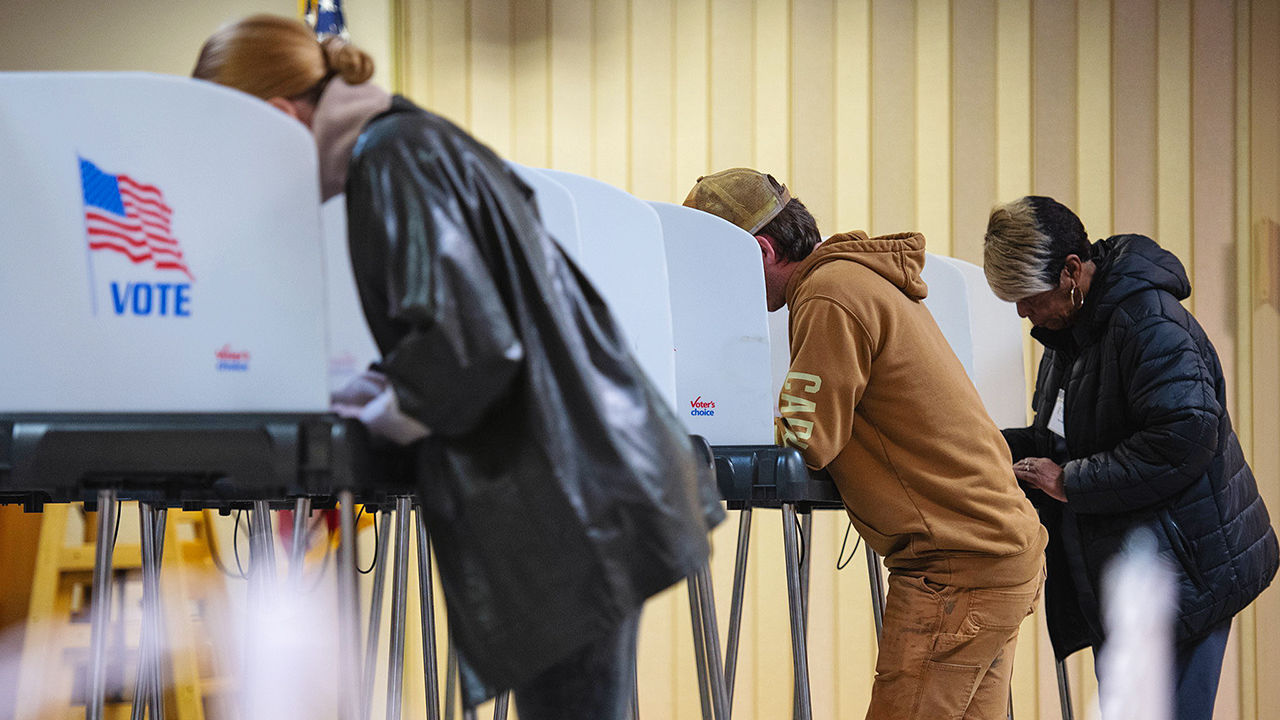WHEN SHOULD an election loser concede? That question lies at the core of a fight over a North Carolina state Supreme Court race that is still being contested months after election day. Jefferson Griffin, a Republican, challenged the incumbent Democrat, Allison Riggs, for her seat in November. After losing by just 734 votes he requested two recounts. When both reaffirmed her win he brought lawsuits, challenging the ballots of nearly 70,000 voters. On January 7th the Republican court, which he hopes to sit on, delayed certification of Ms Riggs’s victory.
Mr Griffin is questioning several sets of voters. They include 5,500 who live abroad or on military bases and did not present a photo ID with their absentee ballots. Another group of just over 60,000 filed registration forms missing a Social Security or driving-licence number. Among the rest, he says, are felons and dead people.
Democrats are up in arms about the challenges. “This is probably the most anti-democratic action we’ve seen on the state level,” says Morgan Jackson, a party strategist. The two largest groups of voters under scrutiny did nothing wrong. According to the rules set by the state election board, overseas voters are exempt from providing ID, and although the board was aware that some voters had incomplete registration forms, it chose not to fix them before the election. That decision was blessed by a federal judge.
An analysis by Chris Cooper of Western Carolina University finds that less than a quarter of the two largest groups of voters being challenged are Republicans. And Mr Griffin is questioning overseas votes in only four of North Carolina’s 100 counties—the most urban, Democratic ones. Mr Griffin is not shy about his goals: in a brief filed last week he encouraged the court to stop checking ballots once the outcome flips in his favour.
At stake is the political future of one of America’s swingiest states, a hotbed for battles over redistricting. The state court is the arbiter of election maps. If Mr Griffin were to secure a spot on the 5-2 Republican-controlled bench, Republicans would surely determine redistricting after the 2030 census. But such a naked power-grab could backfire, says Mr Cooper. North Carolina will host one of the country’s most competitive Senate races in 2026. Even Republicans admit that a story about their team trying to nullify legal votes could help Democrats in that one.
Bob Orr, a former Republican justice who has since left the party, reckons the idea of the legal challenge was prepared before the election for Donald Trump, in case the presidential race in North Carolina was close. Paul Shumaker, who ran Mr Griffin’s campaign, denies that. Republicans claim that the state election board, which is run by Democrats, misinterpreted North Carolina’s voter-ID mandate. Although the rule exempting overseas voters was unanimously confirmed by a rules committee, Republicans believe that the appointed board ought not to be allowed to carve out exceptions from state law. “Why should some people vote under different rules?” Mr Shumaker asks.
Jim Stirling of the John Locke Foundation, a conservative think-tank, says changing the game after everyone has played seems like a hard sell. Yet partisans are committed to the fight. Jason Simmons, the Republican state-party chair, says that Mr Griffin’s loss simply made their unresolved concerns more pressing. He reckons Democrats are the ones playing dirty. “Instead of allowing the process to play itself out they want to adjudicate this in the courts of public opinion,” he says.
Meanwhile the legal challenge is moving through both state and federal courts. On January 27th the federal Fourth Circuit appeals court will hear arguments—its ruling would override a state one. So far one Republican state justice has voiced opposition to Mr Griffin’s arguments. Citing doctrine that prohibits changing election law late in the process, Richard Dietz chastised Republicans for trying to scrap ballots of voters who complied with current rules. Doing so, he wrote, “invites incredible mischief”. ■
Stay on top of American politics with The US in brief, our daily newsletter with fast analysis of the most important political news, and Checks and Balance, a weekly note from our Lexington columnist that examines the state of American democracy and the issues that matter to voters.

 Accounting1 week ago
Accounting1 week ago
 Personal Finance1 week ago
Personal Finance1 week ago
 Accounting1 week ago
Accounting1 week ago
 Finance1 week ago
Finance1 week ago
 Economics1 week ago
Economics1 week ago
 Personal Finance1 week ago
Personal Finance1 week ago
 Personal Finance1 week ago
Personal Finance1 week ago
 Blog Post1 week ago
Blog Post1 week ago





















